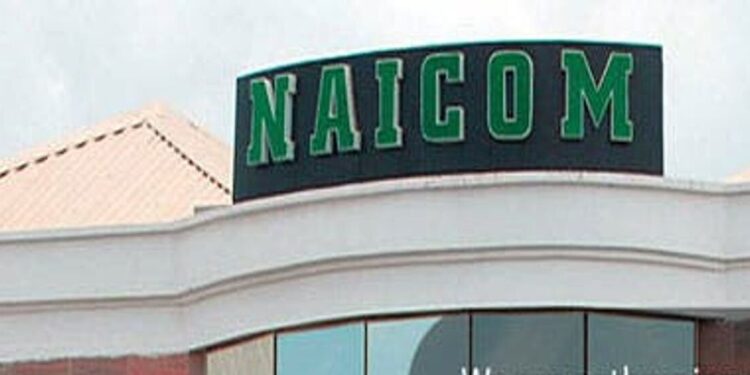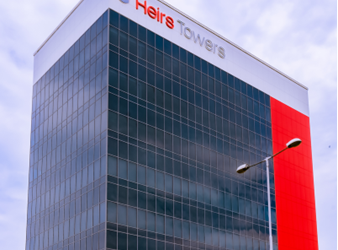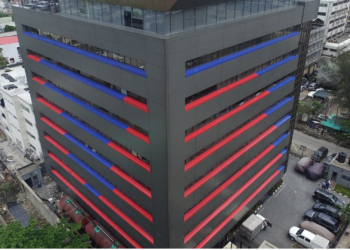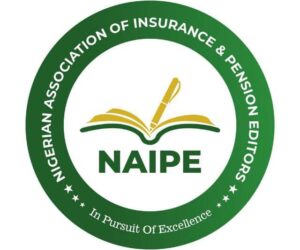THE recapitalisation of insurance companies in Nigeria is once again on the front burner of industry debate. The reason is not farfetched: stark realities have made a fresh injection of capital rather inevitable.
It is no longer news that the National Insurance Commission (NAICOM) has given insurance firms in the country one more year to recapitalise.
It became imperative for NAICOM to set a new deadline for the recapitalisation process, because of the Coronavirus pandemic that has disrupted economic activities across the country, including the insurers. Shoving away businesses set plans and replacing them with plans that reflect the pandemic track to probable stretch out to isolated incidents or contained by the arrivals of still counting clusters of vaccines.
According to NAICOM, “the incidences of Covid-19 pandemic have made it difficult to proceed with the Dec. 31, 2020 recapitalisation deadline.” Therefore, it was appropriate to review the compliance dates leading to the closing date when the recapitalisation deadline curtain drops.
The principal objective of the new levels of capital, is to have bigger and stronger players in the industry with enhanced capacity to retain local risks, develop latent underwriting skills with broader risks knowledge and, reach and cover the majority of the Nigerian populace.
In the meantime, insurance companies are expected to meet at least half of the capital requirements by the end of 2020. The final deadline for full recapitalisation is now September 2021.
This is the third time an extension has been granted since the recapitalisation programme was first announced in May 2019. Initially, NAICOM had extended it from June 30th, 2020 to December 31st, 2020.
Rules of engagement
The recapitalisation programme requires life insurance firms to meet a minimum paid-up capital of N8 billion, up from N2 billion; general insurance companies are expected to increase their paid-up capital to N10 billion from the earlier N3 billion. While the reinsurance companies are to come up to N20b.
Composite insurance (those that operate both general and life insurance) have been asked to recapitalise to the tune of N18 billion as against the pervious amount of N5 billion, while reinsurance businesses are now required to have a minimum capital of N20 billion from N10 billion that obtained in the past.
Pressure
Since the order to recapitalise was given, plans have been afoot by insurance companies to merge while some big ones are trying to acquire smaller ones. Interestingly, the NAICOM is under pressure to manage the situation well.
Some insurance companies are pressuring the Commission to wedge government insistence to tax retained earnings that companies want to convert to capital to circumvent the process as required by the paid-up share capital requirements.
While the big insurance companies, are streaming ahead with the recapitalisation schedules, the newly registered ones have already met the capital requirements, some smaller ones that are yet to meet the recapitalisation target are suggesting alternative deadlines: because of the impact Covid-19 has had on their businesses and their inability to raise the needed capital.
The House of Representatives citing same reasons, recently passed a resolution demanding that the NAICOM suspend its planned December 31, 2020 mandatory deadline for the first phase of 50%– 60% of the minimum paid-up share capital for insurance and reinsurance companies.
According to the House of Representatives, “the suspension is expected to last for six months from January – June 2021 and is necessary to give the insurance operators soft landing, as well as cushion the effects of Covid-19 and other unforeseen circumstances they might have suffered.” However, the House exercise has no force of law that will alter the on-going recapitalisation programme. It’s only an expression of dissent.
Some shareholders too have risen up against the planned recapitalisation and have gone to court. The suit was instituted by the Incorporated Trustees of Standard Shareholders Association of Nigeria and Mr Godwin Anono. They are asking the court to halt any further steps by NAICOM towards implementing the directive for the companies to recapitalise, pending the hearing and determination of the main suit.
It is true that Covid-19 adversely impacted the insurance industry but before Covid-19, it was a well-known fact that insurance companies would be asked to recapitalise since it become obvious that some of them were having difficulties settling claims. Besides, recapitalisation was one of the decisions adopted by the Nigerian Insurers Association and despatched to the Commission for implementation. There may be differences on what should be recognised as capital but both the Commission and NIA are on same platform regarding the need for new capital regime for the operators.
Claims settlement is at the core of insurance business. The trust deficiency that the insurance industry suffers today is due to the long-held belief that insurers do not like to settle claims or downright refuse to settle claims. And when they do, it takes quite a long while to get the claims cheque issued to the claimant. Despite the chances of these occurring, the number of insurers settling claims in record time abound.
To build trust in the industry, NAICOM is pushing for the recapitalisation of insurance companies so that claims settlement will be carried out without much acrimony thus encouraging the public to have trust in the insurance industry.
To make things easier for the insurance companies, NAICOM has split the recapitalisation process into two phases with the first phase terminating on the 31st of December 2020 and the second and final phase to terminate on the 30th of September 2021.
Under the recapitalisation guideline, insurance companies must meet 50% of the new minimum capital requirements while reinsurance providers are required to meet up to 60% of the new minimum capital requirement.
For composite insurance underwriters they are expected to have a minimum of N9billion in paid up capital by 31 December 2020 and N18billion by 30 September 2021 while reinsurers have been told to have N12billion in minimum paid up capital by 31 December 2020 and N20billion by 30 September 2021.
Why recapitalise
According to the Corporate Finance Institute, “recapitalisation is a type of corporate restructuring that aims to change a company’s capital structure. Usually, companies perform recapitalisation to make their capital structure more stable or optimal.
Recapitalisation essentially involves exchanging one type of financing for another – debt for equity, or equity for debt. One example is when a company issues debt to buy back its equity shares.”
Recapitalisation are usually required to reduce financial burden; to prevent hostile takeover and for reorganisation during bankruptcy.
Ekerete Olawoye Gam-Ikon is a management consultant with specialisation in Strategy and Insurance. He recently highlighted why the current recapitalisation drive should be encouraged.
According to him, “policyholders reveal that most individuals are having horrifying experiences with many insurers involved in unsettled claims face-off. Since ‘bad news spreads faster’, the efforts of the more responsive insurers to claims continue to be eroded by the poor actions of others.”
Ekerete Olawoye Gam-Ikon added that “alternative (Non-oil) sources of revenue, social investment, job creation and most recently, financial inclusion are the points of discussion amongst local and international analysts of our national economy yet with little or no mention of insurance despite the role they all know insurance can play in those areas.”
“A transparent handling of the recapitalisation process will, in my view, reveal the genuine gaps that exist in the insurance industry and attract other economic actors with solutions.”
Ekerete Olawoye Gam-Ikon argued that “as investors at home and abroad analyse the opportunities Nigeria offers, the most critical concern continues to be managing the increasing risks. While technology has addressed most in rather predictive and preventive manner, we are yet unable to respond well when the unexpected occurs.”
This is why the Federal Government of Nigeria through NAICOM decided to increase the minimum share capital of insurance companies. Therefore, a transparent process where interested investors can visit companies website or through the social media accounts and be educated to an extent the investor can make an informed opinion about the status of the company in focus becomes imperative.
Most insurance operators believe that “the decision to extend the deadline is reasonable under current circumstances. The coronavirus pandemic has ravaged global economic and financial systems, thus making it more difficult for an already unattractive insurance sector to raise much-needed capital.”
“We note that several players have initiated the process of raising the needed funds from their existing shareholder base via the right issues. However, we highlight that some of the players currently have a negative book value of equity and are trading below their par values. Hence, raising equity capital does not appear feasible. That said, we expect to see a flurry of mergers and acquisitions in the industry once conditions become more favorable,” they said.
George Etomi and Partners describe recapitalisation as “one of the strategies companies use to improve their financial stability. A company may achieve this by adding more debt, more equity, or both to its capital. The decision to recapitalise may be taken by the company voluntarily, but sometimes a company undertakes compulsory recapitalisation in compliance with a regulatory directive.”
“In the latter sense, recapitalisation has proven to be a useful tool in the hands of the Nigerian government for sectoral reformation to sustain adequate economic growth and development. To meet compulsory recapitalisation requirements, companies have had to raise additional funds or gone through mergers and acquisitions,” the company added.
Impact of the circular on the sector
George Etomi and Partners argued that “despite the underwhelming performance of the sector so far, we see the introduction of the new minimum capital requirement as a welcome development and expect it to help improve the insurance sector just as similar laws in the banking industry in 2005 helped shape the future and development of the Nigerian banking industry.”
Nigeria’s insurance sector the company said “is still one of the most underdeveloped compared to its peers. With a population estimated at 200 million people, a growing middle class and increased life expectancy rate for Nigerians (55.2 years average for men and women in 2018 from 54.5 years in 2017), the potential for growth in the sector is significant.”
However, at 0.3%, Nigeria has the lowest insurance penetration level amongst notable African countries. Currently, South Africa is at 14.7%, Kenya at 2.8%, Angola at 0.8% and Egypt at 0.6%. Similarly, the sector’s insurance density is still one of the lowest when compared to its peers.
George Etomi and Partners believe that “not all insurance companies will be able to meet the June 30, 2020 deadline as mandated by NAICOM and this will invariably lead to the mergers and/or acquisitions of insurance companies for compliance purposes. This in effect will result in further consolidation of the insurance industry.”
While receiving the licence issued to Heirs General Insurance, the chairman Tony Elumelu said the new insurance company will develop products.
According to him, “that is one of the things we will bring to the sector. We understand market research, we understand what consumers want, we know how to reach them and surpass their expectations and there is always room for improvement especially with technology.”
Conclusion
It is true that the insurance industry was badly affected by Covid-19, however, before the coronavirus pandemic struck, the insurance industry had been suffering from existential threats which can only be addressed through recapitalisation. These include: obscurity – out of the 57 Insurance companies and two reinsurance companies in Nigeria, less than half advertise their products. Slow to respond small players –fringe insurance players with little or nothing to lose leave a sour taste of insurance in their business transactions with policyholders, thus giving the industry a bad name and poor reputation. Low premium, poor assets– linked to poor rating and subsequent inadequate premiums cause insurance companies to make do with premiums below market value. They are therefore, unable to invest in quality assets that will help them generate good investment income. There is a also the routine issue of weak product development. One issue that kept on recurring during the licensing of new insurance companies in November 2020, was lack of innovative insurance products that will attract policyholders to the industry.
Mr. Sunday Thomas, the Commissioner for Insurance, repeatedly told the newly licensed insurance companies to think out of the box and develop innovative products that fit the needs of the potential policyholders. Over the years, insurance operators have trailed on new product that reflect the changing patterns in the country unlike their counterparts in South Africa.
With recapitalisation of the industry and more capital to develop the business further, the board and management of insurance companies can now invest in campaigns or advertisements. The recapitalisation programme will force small and fitting have nots insurance companies, that are approaching the zone of capital and technical deficiencies, to either emerge or be acquired by bigger credible players. This will also put the cleared insurers in the position to hire smart and innovative staff to help drive market value premium and pave way for asset acquisition.
If successfully executed, the planned recapitalisation will result in the ability of companies to underwrite bigger risks e.g., in oil and gas, create the bastion for risks and higher premium retention within the local market and also, improve settlement of claims and sensitise the public through continuous campaigns on the need to embrace and buy insurance policies.








































